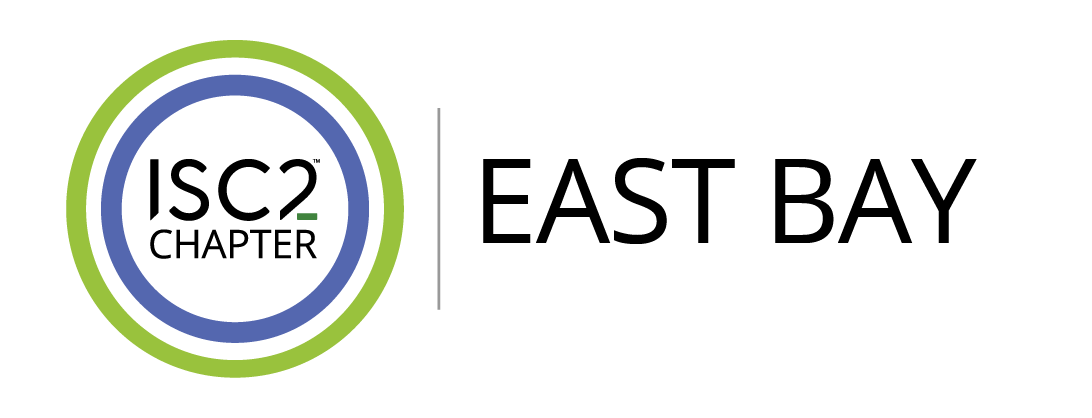Registration required: July 11, 2024, 7:00pm – 9:00pm Pacific Time
7:00 – 8:00 PM Session One: Nation-State Threats in the Open-Source Software Supply Chain
Ross Bryant from Phylum.io will discuss proliferation of threats from Nation–State actors in open-source software ecosystems. We trust and use software from strangers on the Internet. All of us.
Strangers who we will never meet – strangers in such vast quantities across every aspect of the software development lifecycle that it is hilariously unlikely that we will ever truly know the full extent of all of the identities and intentions of all of our open-source software suppliers. Even though open-source has many advantages, there remain risks to consumers of open-source software which we at Phylum broadly categorize into five domains:
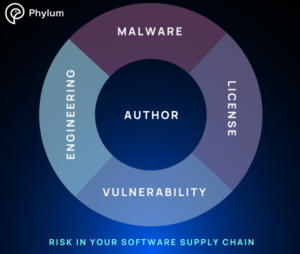

Ross Bryant, Ph.D. is the Senior Security Researcher at Phylum and leads the Phylum Research Team. Ross has over two decades of cybersecurity and math research experience. Prior to joining Phylum in late 2021, he worked as a research project lead at Sandia National Labs where he led a team that researched and developed real-time analytic solutions to network forensics problems. He has also worked in cybersecurity operations for the NSA and U.S. Air Force and as an Applied Research Mathematician for the NSA.

Phylum is an automated, software supply chain security platform that continuously informs organizations of risk, blocks zero-day attacks, and enforces compliance and governance without disrupting innovation. Phylum analyzes open-source software as it is published and ingests software packages, lockfiles, and SBOMs to contextualize risks, prevent threats, and inform developers and security teams. Customers use the Phylum platform to protect applications from malicious code, evaluate third-party vendors, identify brand misuse and targeted attacks, complete mergers and acquisitions, and limit risks associated with using AI to write or fix source code. Phylum also offers a threat feed of real-time software supply chain attacks that can be consumed by any security analytics or observability product to enrich other findings. In 2022, Phylum’s analysis of open-source packages identified thousands of new malicious packages, malicious authors, and supply chain risks that culminated in a massive improvement to open-source software and the first inaugural Black Hat Innovation Spotlight award.
8:00 – 9:00 PM Session Two: Meet the next Unicorns of Silicon Valley, presenting “Plantify” and “Smart Trash”
Robin participated as a judge for the Amador Valley Advanced Computer Science Industry Professionals Competition. The event wowed all the judges and the student presentations were out of this world. The ISC2 East Bay Chapter has invited the top two scores to come present to our community.
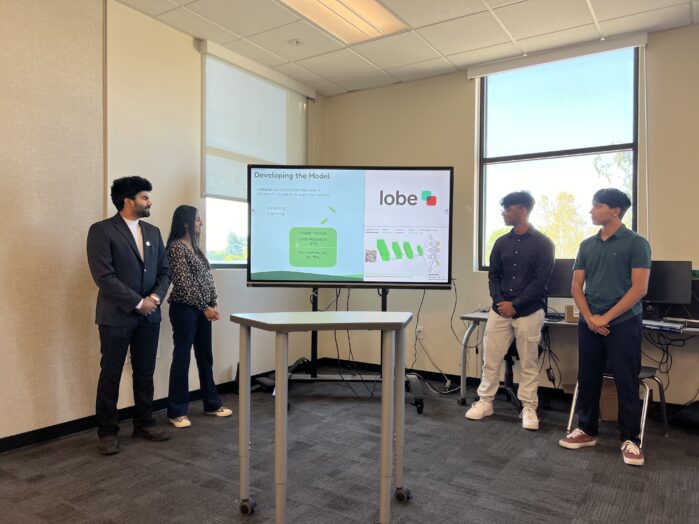
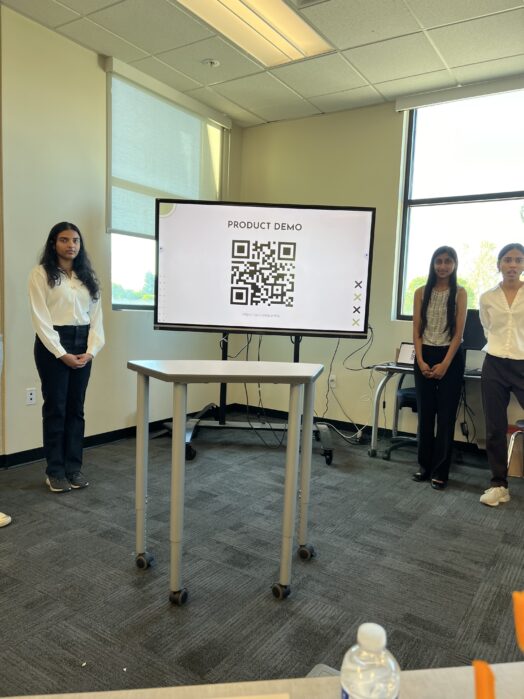
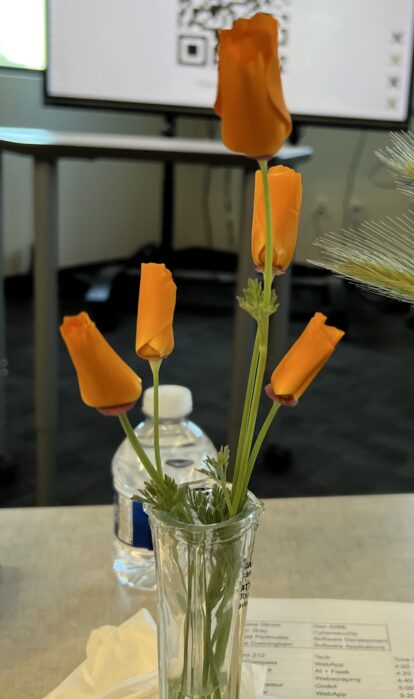
Plantify:
Developed by Misha Garg, Ira Dharia, Aditi Bande, and Manya Saxena
Problem Statement: Few resources are available at Parks and Recreational spaces for local environmentalists and curious community members who seek information on their surrounding plant life. The limited resources that are available consist of long lists of images and scientific names that are difficult to comprehend. This diminishes community members’ awareness about local plant life. According to researchers from Royal Holloway University, Nottingham Trent University, and the University of Sheffield, younger people especially feel like they lack knowledge pertaining to their local environments. Plantify’s goal is to address this issue. The product aims to increase awareness of native plant species at recreational parks around the city of Pleasanton. It is an AI Model that has been trained and tested with over fifty plants found around Pleasanton including various types of grass, flowers, and ferns. Plantify is implemented in the form of a QR code posted along hiking trails to best inform community members of their surrounding flora. Any user can access it using their mobile device by scanning the code and uploading an image of their desired plant. Then, Plantify will return the plant species’ name to the user, enriching their hiking experience.
Smart Trash:
Developed by Kritika Das, Megh Patel, Sumanth Janjanam, and Kalyan Archakam
Problem Statement: Food waste poses a pressing challenge globally, with significant environmental and economic implications. Approximately one-third of all food produced for human consumption is lost or wasted annually, contributing to pollution, resource depletion, and greenhouse gas emissions. Sorting food waste remains a critical constraint in waste management systems, leading to landfill overflow and hindering recycling efforts. The presence of non-biodegradable contaminants further complicates the process, diminishing the quality of recovered resources and increasing disposal costs.
A trash detection system tailored for food waste sorting would solve some of these challenges. By accurately segregating organic waste from non-biodegradable materials, this solution aims to streamline waste management workflows, reduce contamination levels, and promote sustainable resource utilization practices in both residential and commercial settings. Through real-time detection and classification of food waste items, our innovative system will empower students and individuals to improve waste sorting accuracy, minimize environmental impact, and contribute to a more circular economy.
